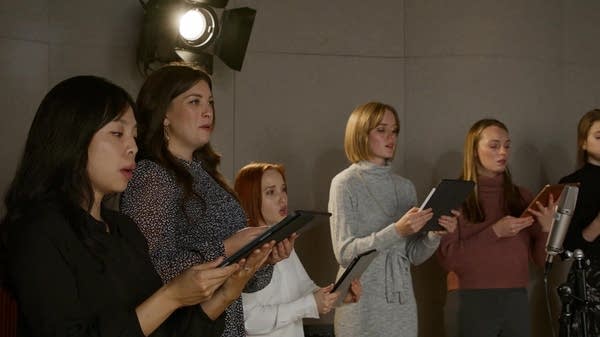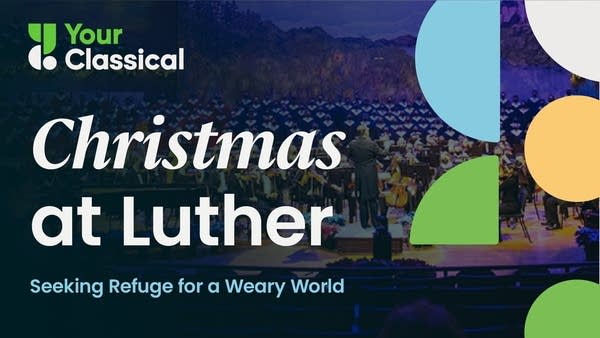
As we prepare to broadcast the Saint Paul Chamber Orchestra's performance of Handel's Messiah (December 31, 10:00 a.m.), we answer a few questions you might have about this perennially popular masterwork.
What's Messiah?
It's an oratorio that praises Jesus Christ through adapted Biblical texts set to music.
What's an oratorio?
An oratorio is a musical composition that includes an opera-like mix of orchestra, choir, and soloists — but written for a concert (rather than theatrical) performance and typically containing religious subject matter.
Who wrote Messiah?
German-turned-English composer George Frederic Handel wrote the music, to a libretto assembled by Charles Jennens.
When?
Messiah was written in 1741; its first performance was in Dublin, in 1742.
Why?
(1) For the glory of God,
(2) for the benefit of charity (profits from the first performance were used to support a hospital and an infirmary in Dublin; and to release 142 people from debtors' prison), and, of course,
(3) for the benefit of George Frederic Handel (profits from the second performance went straight to the composer).
When did it become such a big deal?
Immediately. Reporting from the premiere, the Dublin Journal wrote, "Words are wanting to express the exquisite Delight it afforded to the admiring crowded Audience. The Sublime, the Grand, and the Tender, adapted to the most elevated, majestick, and moving Words, conspired to transport and charm the ravished Heart and Ear." It took Messiah a bit longer to catch on in London, but by Handel's death in 1759, the piece had helped to make the composer very wealthy and famous. The rest, as they say, is history.
Why is it a Christmas thing?
That's a good question, since Messiah didn't start out as a holiday piece. Only a small section of the work actually describes the events surrounding the birth of Christ, and its first performance was in April. Over the centuries, however, Messiah — the "Hallelujah" chorus in particular — has become a seasonal tradition. The vast majority of Messiah performances (and there are many) take place each year in December.
I hear you're supposed to stand up during the "Hallelujah" part. True?
Depends on whom you ask. Many generations of concertgoers have jumped to their feet at the stirring chorus, but some music lovers argue that suddenly standing up is disruptive and distracting, and many performers explicitly request that audiences remain seated for the duration.
Would Handel be bummed that everyone thinks of him now as Mr. Messiah?
Nah. Handel was a composer who was closely-attuned to public perception, and he would doubtless have loved to have known that 250 years after his death, Messiah would remain one of the most recognizable and popular compositions of all time. Messiah's out-of-the-park success has also helped to keep a number of Handel's other compositions in the repertoire.
What's the best recording?
Messiah has been recorded approximately a thousand times — no, that's not an exaggeration — so there's plenty of room for debate. A 2006 critics' poll chose Christopher Hogwood's 1980 recording with the Academy of Ancient Music; at Classical MPR, both Rex Levang and Brian Newhouse recommend John Eliot Gardiner's Philips recording with the Monteverdi Choir and English Baroque Soloists.
Okay, I'm into it. What should I listen to next?
Lucky for you, Handel wrote dozens of oratorios, so those would be the logical next stop — along with Handel's operas, though generally they're not as well-regarded. Handel's Baroque contemporary Johann Sebastian Bach also wrote a large number of superb religious choral works; Bach's cantatas alone could keep you busy for years. Beyond that, consider exploring the vast body of choral repertoire through Classical MPR's continuous choral stream. Don't worry — we don't mind if you stand up when you feel like it.
Love the music?
Show your support by making a gift to YourClassical.
Each day, we’re here for you with thoughtful streams that set the tone for your day – not to mention the stories and programs that inspire you to new discovery and help you explore the music you love.
YourClassical is available for free, because we are listener-supported public media. Take a moment to make your gift today.










